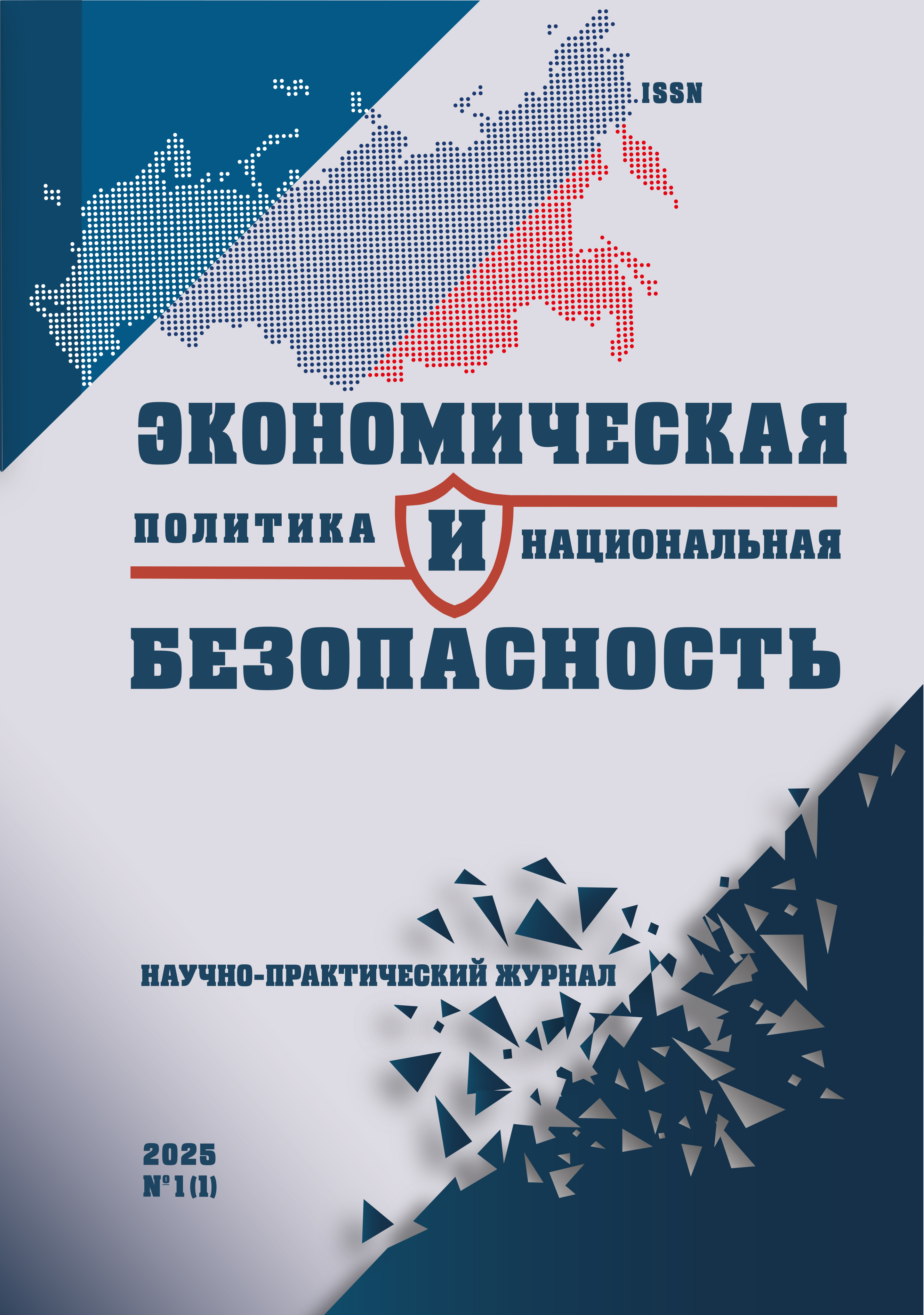Russian Federation
Russian Federation
Introduction. The development of an adequate strategy for ensuring food security at the meso-level is complicated by the presence of many factors interacting non-linearly with each other. Moreover, the speeding up and transformation of economic processes due to the digitalisation of business processes make it impossible to predict future trends in the development of the domestic agro-industrial complex. Methods. The research methodological basis was provided by the methods of scenario and comparative analysis. The use of the correlation and regression analysis as well as the method of forecasting made it possible to empirically determine the numerical characteristics of the indicators of the strategy of ensuring food security. Results. The proposed algorithm of food security strategy development, based on the use of scenario planning tools, enabled to determine the key areas of food security, considering the increased exogenous volatility.
food security, scenario planning, development strategy, stable development
1. Altukhov, Anatoly I., Veniamin V. Drokin, and Alexey S. Zhuravlev. 2015. “Prodovol'stvennaya bezopasnost' i importozameshcheniye – osnovnyye strategicheskiye zadachi sovremennoy agrarnoy politiki” [“Food security and import substitution – the main strategic objectives of modern agrarian policy”] (In Russ.). Ekonomika regiona [The economy of the region], no. 3: 256–266. https://doi.org/10.17059/2015-3-21
2. Ansoff, Igor. 1989. Strategic management 519. Moscow: Ekonomika, 1989.
3. Bogomolova, Elena G. 2004. “SWOT-analiz: teoriya i praktika primeneniya” [“SWOT analysis: theory and practice of application”] (In Russ.). Ekonomicheskij analiz: teoriya i praktika [Scientific analysis: theory and practice] 32, no. 17: 57–60.
4. Gurbik, Yuri Yu., and Evgeniy G. Bortnikov. 2024. “Analiz teorii konkurentsii M. Portera kak vazhneyshey osnovy razvitiya konkurentosposobnosti strany” [“Analysis of M. Porter's theory of competition as the most important basis for the development of a country's competitiveness”] (In Russ.). Konkurentosposobnost' v global'nom mire: ekonomika, nauka, tekhnologii [Competitiveness in the global world: economics, science, technology], no. 4: 24–29.
5. Novysh, Boris V., and Irina A. Yurcha. 2021. “Imitatsionnoye modelirovaniye kak instrument prognozirovaniya ekonomicheskoy bezopasnosti regionov” [“Simulation modeling as a tool for forecasting economic security of regions”] (In Russ.). Ekonomika. Upravlenie. Innovacii [Economy. Management. Innovation] 9, no. 1: 34–40.
6. Prudius, Elena V. 2023. “Prodovol'stvennaya bezopasnost'–fundament ekonomicheskoy bezopasnosti strany” [“Food security is the foundation of the country's economic security”] (In Russ.). Problemy rynochnoj ekonomiki [Problems of market economy], no. 2: 112–124. https://doi.org/10.33051/2500-2325-2023-2-112-124
7. Stern, Karl, and George Stoke. 2007. Perspectives On Strategy from the Boston Consulting Group 495. Moscow: Mann, Yves Herber.
8. Bozsik, Norbert et al. 2022. “Food security management in developing countries: the impact of economic factors on food availability and accessibility.” PloS one 17, no. 7 (July): e0271696. https://doi.org/10.1371/journal.pone.0271696
9. Chakravarti, Balaji S., and Howard V. Perlmutter. 2023. “Strategic planning for global business.” Edited by Franklin R. R., Kanoknart V. International Strategic Management: Challenges And Opportunities (1st ed.), 29-42. New York: Routledge. https://doi.org/10.4324/9781315058993
10. Chermack, Thomas J. 2005. “The study of scenario planning: theory, research proposals and hypotheses.” Technological forecasting and social change 72, no. 1 (January): 59-73. https://doi.org/10.1016/j.techfore.2003.11.003
11. Cordova-Poso, Kathya, and Etiёnne A. J. A. Rouett. 2023. “Types of scenario planning and their effectiveness: a review of reviews.” Futures 149, no. 5 (March): 103153. https://doi.org/10.1016/j.futures.2023.103153
12. Derbyshire, James et al. 2023. “The value of experiments in the field of futures and foresight science is illustrated by the example of scenario planning.” Futures & Foresight Science 5, no. 2 (November): e146. https://doi.org/10.1002/ffo2.146
13. Manikas, Ioannis, Beshir M. Ali, and Balan Sundarakani. 2023. “A systematic review of the literature on indicators measuring food security.” Agriculture & Food Security 12, no. 1 (May): 10. https://doi.org/10.1186/s40066-023-00415-7
14. Spaniol, Matthew J., and Nicholas J. Rowland. 2018. “The paradox of scenario planning.” Futures 95, no. 1 (October): 33-43. https://doi.org/10.1016/j.futures.2017.09.006
15. Tapinos. Efstathios. 2012. “Perceived Environmental Uncertainty in scenario planning.” Future 44, no. 4 (December): 338–345. https://doi.org/10.1016/J.FUTURES.2011.11.002





